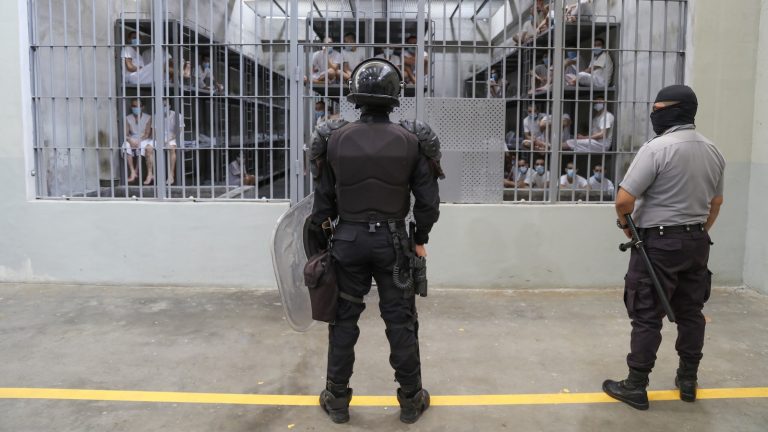A federal judge in Boston said elements of the Trump administration’s policy of deporting migrants to countries other than their own without them being able to raise concerns about their safety was “very troublesome” during a court hearing on Thursday.
U.S. District Judge Brian Murphy said his recently issued temporary order blocking such removals would remain in effect for another week while he considers issuing a longer-lasting preliminary injunction, which has the potential to stall the frequently used deportation approach taken by the Trump administration.
During a two-hour hearing on Thursday, a lawyer representing a group of noncitizens argued the policy “creates havoc” by using “a bait and switch” to send migrants to countries other than their place of origin, even if the migrant has reasonable concerns about their safety once relocated.
Judge Murphy signaled misgivings about elements of the policy, suggesting the noncitizens lack a meaningful way to raise concerns about their safety when they are rushed onto deportation flights.
“If someone is picked up tomorrow morning at 6 a.m. and taken to a country where they could be killed based on an individual danger, they have no way to raise that?” Judge Murphy said. “That seems very troublesome to me.”
Lawyers with the DOJ argued that the Department of Homeland Security has issued new guidance to protect the safety of the noncitizens once they are removed — but Trina Realmuto, a lawyer for the noncitizens, described the new policy as inadequate because the migrants don’t have access to a lawyer, time to gather evidence, or the opportunity for judicial review.
“We think that is hugely, hugely problematic,” Realmuto said. “The mechanism as a whole does not address our concerns, nor does it come close to the protections provided in the temporary restraining order.”

Prison officers stand guard a cell block at maximum security penitentiary Center for the Compulsory Housing of Terrorism, April 4, 2025 in Tecoluca, San Vicente, El Salvador.
Alex Pena/Getty Images
Deputy Assistant Attorney General Drew Ensign pushed back on the criticism, arguing that delaying removals so that migrants could raise concerns about their safety could backlog the courts and add “potentially years of delay.”
“People have already received quite a lot of progress,” he said. “The decision to remove someone to a third country is a discretionary decision.”
Both sides also disagreed on whether Judge Murphy has the authority to return one Guatemalan man who was already sent to Mexico without being able to raise concerns that he had been raped in the country and feared prosecution or torture there.
Realmuto urged Judge Murphy to order the man be returned to the United States where he can exercise his due process rights. Lawyers with the DOJ disagreed.
“We don’t think this court has the authority or jurisdiction to issue such an order,” Ensign argued.
Judge Murphy said he plans to issue a decision on his preliminary injunction next week, and he set an April 28 hearing to learn more about potential violations of his temporary order.
Two days after Judge Murphy issued his temporary order blocking the deportations last month, the Trump administration announced that it had removed 17 alleged members of Tren de Aragua and MS-13 to El Salvador’s notorious CECOT mega-prison. According to the plaintiffs, at least two of the men on those flights had final orders of removal to Venezuela and were never given the right to challenge their removal to El Salvador.
According to the plaintiff’s lawyers, one of those men is Maiker Espinoza Escalona, who entered the United States last year with his partner Yorely Bernal Inciarte and their one-year-old baby.
After the three turned themselves in to immigration authorities, they were separated, their family told ABC News. Inciarte has been detained at a detention center in El Paso, Texas, their baby has been in government custody, and Escalona is detained at CECOT in El Salvador, according to Inciarte’s mother.
The Trump administration alleged that Escalona is a member of the Venezuelan gang Tren de Aragua, an accusation his family denies.
“They are liars,” said Inciarte’s mother Raida of the Trump administration. “I cannot believe that half of Venezuela is Tren de Aragua. That can’t be.”
“For them to be sent [to El Salvador] you have to investigate and prove they are what they are being accused of,” Raida said. “We’re distraught, I don’t wish this on anyone.”



